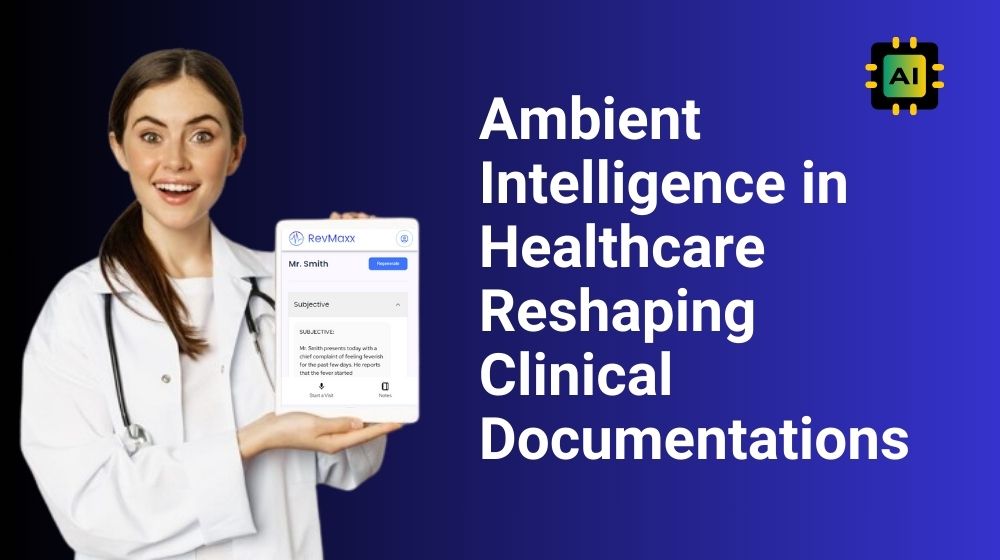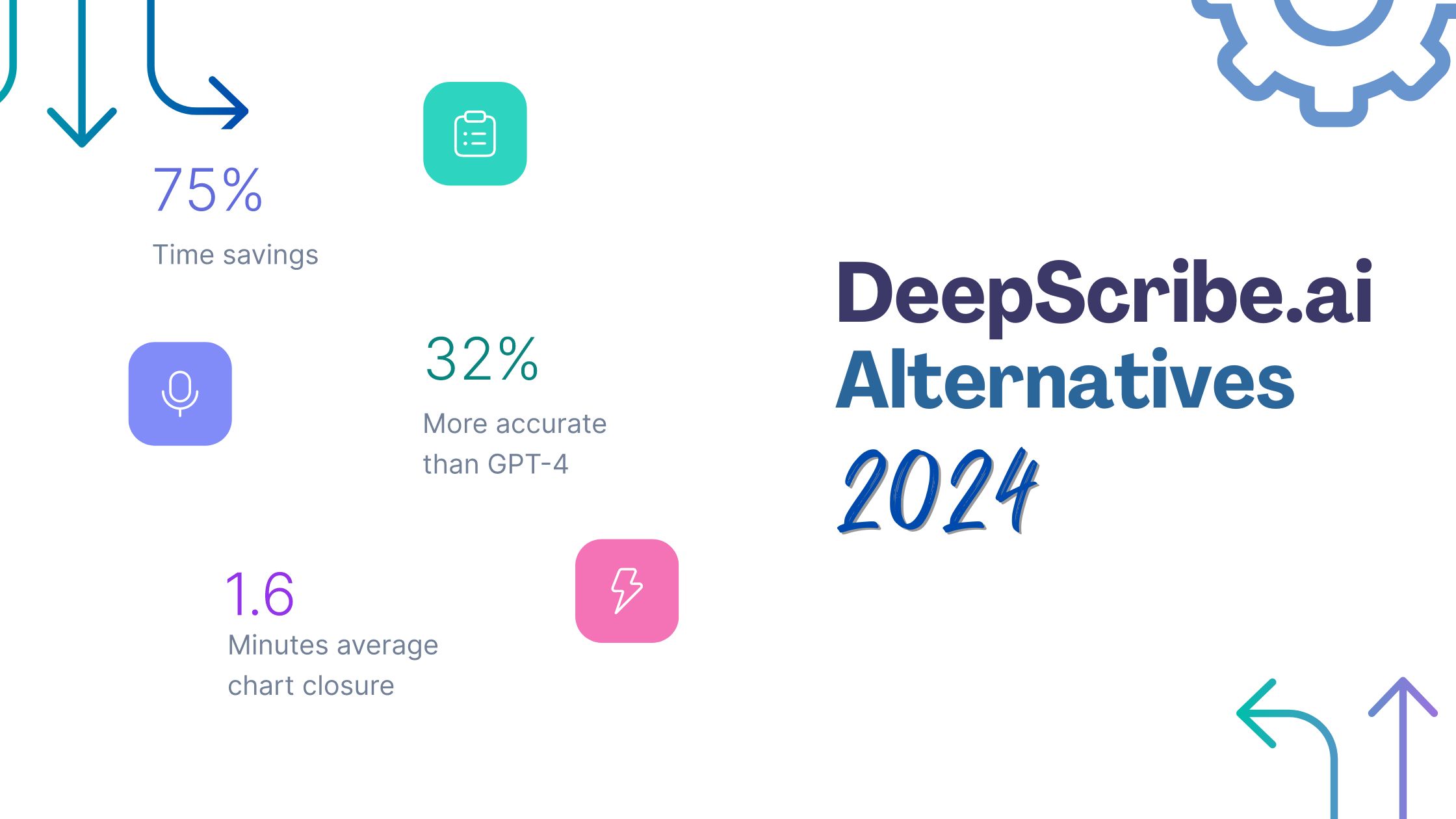Artificial Intelligence in Healthcare
World is changing, so is the healthcare industry with the emergence of artificial intelligence (AI). AI in healthcare has revolutionized medical practices, from fundamental research to practical applications in surgery techniques and disease detection, and in addition to that it has brought huge changes in medical practices.
We asked the internet about the recent healthcare trends in 2024. After hours of research, over 5 white papers, 43 peer-reviewed articles and thousands of reputed healthcare blogs kept telling what the number one trend is:
“Undeniably” artificial intelligence in Healthcare.
Today, artificial intelligence in healthcare is exponentially growing because of:
- Generation of large and complex healthcare datasets
- The pressing need to reduce healthcare costs
- The need to improve computing power
- Decline in hardware costs
- Encourage productive collaborations among different healthcare domains
How is Artificial Intelligence used in Healthcare?
Artificial intelligence in healthcare leads to core areas of research and applied medicine, including surgery methods, and disease detection. Studies across variable sub-fields help establish hypotheses and conduct experiments with the most advanced tools of R&D, backed by heavy global investments. This is helping artificial intelligence flourish with a collective effort towards making healthcare better by the day.
Through these efforts, AI has traveled from extensive laboratories to small clinics and hospitals you visit, where AI is used EVERY SECOND of the day by administrators and independent physicians.
- Administrative Workflow: Out of the biggest scopes of Artificial intelligence in healthcare, most articles expand on how AI has improved efficiency in administrative workflow through the automation of non-clinical tasks.
- Error Detection: AI algorithms easily identify errors in how a patient self-administers medications, or frequent medical coding mistakes in transcription
- Fraud Detection: AI can assist in identifying odd or dubious patterns of insurance claims, especially the invoicing of expensive treatments or unfulfilled procedures.
- Drug Discovery and Development: By evaluating large datasets to find promising drug prototypes and estimate their efficacy, artificial intelligence (AI) speeds up the drug discovery process.
Financially how is it looking?
Two years ago, a Morgan Stanley research report predicted that the costs dedicated to artificial intelligence and machine learning in the healthcare sector are expected to surpass 10.5% in 2024, up from 5.5% in 2022.
So…did it?
Well, today, the global Al in Healthcare market size is valued at USD 20.9 billion in 2024 and is estimated to reach USD 148.4 billion by 2029. In other words, estimate a whopping 48.1% CAGR!
What is the Smart use of Artificial Intelligence in Healthcare?
Our case for artificial intelligence in healthcare today will focus on the single biggest factor that concerns healthcare: Data.
Unstructured Data: Big data analytics in healthcare shows that up to 80 per cent of healthcare documentation is unstructured data, and therefore goes largely unutilized by health systems since the data science of mining and extraction of this information is challenging and resource intensive.
Cognitive Overload: The management of EHR systems carrying thousands of patient profile records causes immense cognitive overload on the hospital administration, leading to serious mental fatigue, reduced efficiency, and increased stress. Furthermore, this can severely impact a physician or a nurse’s ability to practice anymore.
Artificial intelligence in healthcare leverages the powerful healthcare technology of NLP and Machine learning to handle data overload. How?
- Giving voice to unstructured data
Without natural language processing in healthcare, unstructured data is not in a usable format for modern computer-based algorithms to extract and use beneficially.
From searching to analyzing to interpreting enormous patient datasets, NLP is winning the healthcare administration field with its tools of advanced medical algorithms and machine learning in healthcare. NLP seamlessly extracts what was buried beneath text-data forms with relevancy, insights, and further recommendations. Furthermore, it:
- Automates the transcription of physician-patient interactions, reducing the time and effort required for manual data entry
- accelerates the medical coding process and minimizes the risk of coding errors with AI transcription tools.
- ensure accurate reimbursement for physicians and legal security compliance by error detection methods
- Facilitates Information retrieval and data analysis for further research in Medicine
- Giving relief to our physicians
Physicians spend a lot of time inputting the how and the why of what’s happening to their patients into chart notes. As we learnt, the unstructured character of raw data does not make information easily extractable for further analysis. Hence physicians face problems like:
- Lack of Interoperability
- Inefficient patient record management
- Physician Burnout
Reports have shown physicians’ considerable dissatisfaction with electronic health records, which is aggravating with developers and regulators adding more patient safety features, quality measures, and reporting requirements into the same old software.
By automating charting, NLP and ASR healthcare technologies help address the source of the problem, leading to a 40% improvement in work-life balance for clinicians.
Documenting Speech and Interaction
A big part of healthcare entails communication between providers and patients.
When the doctor sits down with the patient, they document their patient’s entire visit in clinical notes. These narratives of interaction go into their EHRs to be preserved as free text data.
Some of the primary points of need where NLP comes to help out physicians in handling big data are:
- Specialized Information Extraction: Healthcare natural language processing uses specialized engines capable of scrubbing large sets of unstructured data to discover previously missed or improperly coded patient conditions.
- Efficient Documentation and SOAP Notes: NLP algorithms make clinical documentation requirements easier by recording patient-provider conversations in real-time, additional dictation by the provider post-visit, or generating tailored medical information for patients ready for discharge. We will discuss AI Medical scribe for doctors' specific use cases in the next section.
- Automated Medical Coding: Physicians face severe problems with errors made by human medical coders in translating extensive and detailed medical jargon into ICD-10 medical codes. With automated medical coding, AI-powered s can handle detailed documentation including the requirement for laterality, body part, and methodology description, and translate conversations into accurate medical codes.
Artificial Intelligence in Healthcare as a Scribe for Doctor
One cannot hold a conversation on artificial intelligence in healthcare expertise in handling big data without bringing in the best software to represent it – AI Medical Scribe.
This healthcare technology is seeing itself at the zenith of artificial intelligence in healthcare. WHY?
Simply because providers were in search of innovative solutions that streamline their clinical documentation processes and improve patient care in the fast-paced and data-driven world. The artificial intelligence in healthcare solved it.
Targeting the primary pain points like documentation in medical recording and clinical decision-making, AI scribe for doctors have aided in a physician’s problems with data.
How so?
A survey by Elation Health found that 33% of primary care physicians are already trialing AI scribe technologies, indicating significant early adoption.
Physicians spend a significant portion of their day on charting and paperwork, with some estimates indicating up to 4.5 hours daily. Artificial intelligence in healthcare for doctors’ high-end NLP and ASR solutions easily automates these tasks, allowing clinicians to complete charting more efficiently and see more patients.
Major technology companies like Microsoft, Apple, and Google are actively investing in AI healthcare solutions, including AI scribe for doctors, recognizing the transformative potential of these technologies.
What Artificial Intelligence in Healthcare Bring, That Human Cannot
Highest efficiency at the Cheapest Rate.
In the terrifying wake of staff shortages, artificial intelligence in healthcare for doctors came at the best time to save the hospital administration industry, thereby skyrocketing in popularity among relieved doctors and physicians.
Taking care of BOTH physician revenue margins and enhancing patient care, artificial intelligence in healthcare diminishes the reverberating effect of physician burnout by automating documentation in the following ways:
- Automated Recording of Patient-Provider conversations
- Accurate extraction of relevant information
- Structured SOAP notes and documentation
- Easy-to-operate Interface for review and sign
- Effortless integration with the EHR system

Diminishing Physician Burnout
AI’s integration into a doctor’s documentation tasks has changed the landscape of physician burnout.
- Google’s study on their AI scribe technology, “Automated Speech Recognition for Medical Conversations,” showed a 20% reduction in documentation errors compared to manual transcription.
- Physicians using Nuance’s DAX solution saw a 20% increase in patient throughput, allowing them to see more patients and offset staffing shortages
- Exceptional Medical scribes using customized AI algorithms like RevMaxx and Deepscribe have reported a reduction of after-hours EHR documentation by as much as 75 per cent, leading to better job satisfaction and reduced physician burnout.
Increasing Revenue Cycle
Today’s AI Medical scribes have set a new record for how long it takes for a clinical note to fully be written and coded- only a few hours or minutes.
The speedy process in turn elevated the revenue cycle for the physicians, leading to:
- Better cash flow
- Fewer accounts receivable days
- Less pressure on your practice
Improving Patient Care
AI scribes enable more face-to-face time with patients, fostering better patient-provider relationships.
A study published in NCBI (National Library of Medicine) found that physicians using AI scribes spent 75% more time interacting directly with patients, leading to improved patient satisfaction and reduced physician burnout.
Improved Care Coordination: Accounting for patient happiness in patient care, Artificial Intelligence in healthcare promotes better care coordination for patients with complex health issues. scribe technology can do this by making sure that when patients get comprehensive, up-to-date clinical notes shared with them, as well as accessed by different providers whenever needed.
This helps in preventing significant gaps in patient care which were previously left by administrative burdens and physician burnout.
Enhanced Patient Privacy: AI medical scribes may strengthen patient privacy because they don’t need another individual to be present to operate. Patients are more comfortable discussing delicate health matters in this setting, contributing to the quality of information shared during consultations with physicians.
A Hybrid Approach: Combining Speed with Judgement
The best thing About artificial intelligence in Healthcare today is its flexibility to embrace a hybrid approach in a clinical setting.
Combining the strengths of human flexibility, with the 24/7 availability of highly accurate documentation of AI scribes, hospital settings can achieve the highest form of efficiency while avoiding unnecessary costs.
AI medical scribe firms such as RevMaxx leverage artificial intelligence in healthcare technology to quickly create extensive SOAP notes and medical codes from patient visits. asynchronous human scribes can examine and modify that data output. Healthcare, therefore, benefits from both modalities,
Error Recognition and Correction: While healthcare technology AI provides cutting-edge accuracy in documentation, Human scribes can recognize and correct errors in real-time. They can use their judgment and intuition to identify mistakes that AI might miss, thus improving the accuracy of medical records and patient outcomes
Adaptability and Contextual Understanding: The models of AI medical scribes are trained in multiple languages and verbal cues to effectively document unstructured conversations between doctors and patients. However, for non-verbal cues, human scribes can take over, leveraging their real-time presence to ask follow-up questions to clarify information, ensuring the medical record is accurate and complete.
Security and Compliance
Beyond the technicalities, one must understand the importance of security and legal compliance when handling patient data. To guarantee compliance with regulatory requirements, Protected Health Information (PHI) must be held to strict privacy and security standards. Major consequences may result from any abuse, data breaches, or illegal access to sensitive health data.
That’s why RevMaxx AI makes it crystal clear in its security policy of compliance with every organization’s data security needs. This includes:
- Complete HIPAA compliance along with certifications for data protection and information security
- Abiding by secure data storage practices
- Transparent data processing strategies
- Secure data transfer outflows and inflows
RevMaxx and other proprietary AI medical scribe software understand the importance of security awareness and consent regarding the use of data for AI models. Moreover, patients and physicians alike must trust that their data is being used for their benefit. These medical scribes safeguard patient data to uphold ethical principles and secure trust.

Final Thoughts
What the healthcare world needs is the implementation of AI augmented human decision-making. We believe in administration and healthcare executives using AI to prioritize patient-centric care, not provide it. So, with the help of sophisticated AI software like AI medical scribes, AI medical coding software, telemedicine, and more, the healthcare industry can and should expand to broader trends in innovation, focusing on data utilization for equitable patient care, value-based approaches, and the integration of various healthcare technologies.







